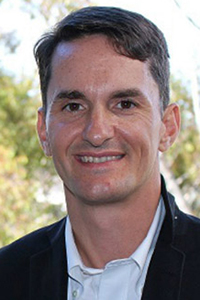Dr. Gregory Light is a Professor and Deputy Vice Chair of Education and Training in the UCSD Department of Psychiatry. Dr. Light also serves as the Director of Mental Health Research and the Director of the Mental Illness, Research, Education and Clinical Center (MIRECC) at the VA San Diego Healthcare System. In these roles, he provide leadership, supervision, and administrative support across several clinical, education, and multidisciplinary research programs. Dr. Light has published over 130 peer-reviewed papers (h-index=55). This work has been prominently featured in policy reports from the Institute of Medicine for next-generation strategies for personalized treatments of psychotic disorders.
Psychotic disorders have devastating and often life-long consequences for approximately 2% of the global population. Most psychiatric interventions are implemented in the absence of knowledge about individual variation in important domains of brain function that might influence therapeutic response and outcome. This “one-size-fits-all” approach to treatment is problematic, with treatment failure occurring far too often and incurring substantial cost to the patient, family, therapist and larger social system. To “bend the curve” on the individual outcomes and societal impact of chronic psychotic illness, we must advance our understanding of the neural substrates of the illness features that most strongly contribute to poor outcomes, and use this information to guide mechanistically informed, personalized treatments. Dr. Light's program of research has advanced the use of neurophysiological biomarkers to develop precision medicine trials for psychosis patients that are: 1) effectively delivered in “real-world” community centers; and 2) informed by objective, reliable, validated, and low-cost biomarkers for identifying patients most likely to benefit (or not) from treatments. Findings support large-scale biomarker-guided trials to prevent or ameliorate illness in high-risk cohorts or treatment refractory populations. This program ultimately aims to develop and apply personalized biomarker assessment tools to deliver the “right treatment” to the “right person” at the “right time.”
Dr. Light's career has maintained a focus on developing scientists for careers in academic medicine and neuroscience. As Deputy Vice Chair of Psychiatry Education and Training in the UCSD Department of Psychiatry, Dr.Light assists in the oversight of over 25 Programs. As Center Director of the Mental Illness, Research, Education, and Clinical Center (MIRECC) at the VA San Diego Healthcare System, he oversees 2 successful post-doctoral fellowship programs and coordinates the activities of trainees at many levels. Dr. Light also provides frequent lectures and serves on independent study, thesis, and dissertation committees across departments at UCSD including: Psychiatry, Psychology, Neuroscience, Cognitive Science, and Biology. Dr. Light also oversees medical student research studies. I serve as a mentor for 3 prominent international neuropsychiatric research organizations: Society of Biological Psychiatry, the American College of Neuropsychopharmacology, and International Congress on Schizophrenia Research.





